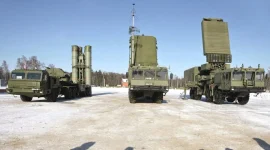- Views: 5K
- Replies: 35
Negotiations between General Electric (GE) and Hindustan Aeronautics Limited (HAL) for the licensed production of F-414 engines in India have hit a snag. GE has reportedly increased its asking price for the deal, which includes an 80% Transfer of Technology (ToT) clause, by $500 million.
This unexpected rise, from the initially agreed $1 billion to $1.5 billion, has introduced delays as both sides renegotiate the final contract value.
The increased cost is attributed to a significant expansion of the ToT offered to HAL. Sources indicate that the new agreement includes a 22% increase in technology transfer compared to a previous 2012 deal. This enhanced ToT aims to provide India with greater capability and self-reliance in jet engine technology, a key objective for the nation's defence industry.
To manage the complexities of the negotiation, HAL has established a dedicated Contract Negotiation Committee (CNC) and is currently reviewing technical documents provided by GE to evaluate the proposed technology transfer.
Despite the price hike and subsequent delays, HAL remains confident in finalizing the agreement with GE by the end of March 2025. However, concerns are growing that protracted negotiations may impact the timeline of India's Tejas Mk2 program, which relies heavily on these engines.
This situation underscores India's ongoing efforts to achieve self-reliance in critical defence technologies. In addition to collaborating with global manufacturers like GE, India is actively pursuing the development of its own indigenous jet engine and may soon announce a partnership with an international partner to accelerate this endeavor.
The advanced ToT offered by GE in the F-414 deal is expected to be instrumental in bolstering India's domestic jet engine manufacturing capabilities.
While the increased cost presents a hurdle, the potential benefits of the expanded technology transfer are substantial for India's long-term defence goals. The coming weeks will be crucial as HAL and GE strive to reach a mutually agreeable outcome that balances cost considerations with the strategic importance of enhanced technological know-how.





